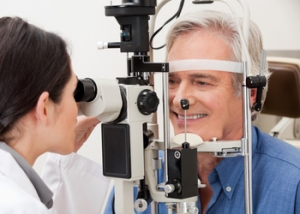What to Do After Cataract Surgery? Follow These General Considerations
Managing and treating cataracts are common aspects of eye care. While cataract surgery can be a daunting prospect, cataract surgery in Australia is considered to be a safe, effective procedure. After having your cataracts removed, your eye specialist will give you guidelines on what to do after cataract surgery in order to minimise your risk of a complication or adverse event. Depending on your specific eye specialist, your post-operative instructions may differ slightly, but here are some general considerations.
What to do After Cataract Surgery?
Practising good eye care after your cataract surgery will help to make your recovery as smooth and uneventful as possible. This being said, even if your cataract surgery was uncomplicated and you are considered to be a low risk for any adverse events, there is always a risk after any surgical procedure. To reduce your risk, it’s important to follow all post-operative instructions or talk to your eye care professional if you’re unsure about what to do after cataract surgery.
Allow yourself to rest
Although typically a simple day procedure, cataract surgery can leave you feeling fatigued and worn out. Be sure to bring a driver with you to take you home after your procedure and if you’re still feeling uncomfortable driving the next day, arrange for someone to bring you to wherever you need to go. Post cataract surgery is a great opportunity to take a break from housework and chores, which include avoiding any heavy lifting like shopping bags. You may also want to take leave from your regular job for at least a few days, depending on your vocation.
Keep your eye clean and protected
Immediately after cataract surgery and for the following few weeks, your eye will be at a heightened vulnerable state for infections. To minimise your risk of n infection, keep the eye area hygienic with clean water. Avoid any soaps, detergents, commercial facial cleansers, and makeup around the eye. Your eye specialist will also advise you to stay away from unsterile water sources as your eye heals over the first week or so – these include the beach, swimming pools, saunas and hot tubs. You can still shower (as personal hygiene is important!), but in the first few days, you may want to keep your eye out of the spray. As your eye continues to heal after cataract surgery, it’s a good idea to stay away from environments that increase your risk of catching debris in your eye. This can include the dusty storage areas of your house or even the park on a windy day.
Finish your prescribed eye drops
 After your procedure, your eye specialist will prescribe you two to three bottles of eye drop medications. These include an antibiotic and one or two anti-inflammatory medications.
After your procedure, your eye specialist will prescribe you two to three bottles of eye drop medications. These include an antibiotic and one or two anti-inflammatory medications.
You’ll also be given dosing instructions, which may look something like “four times a day until the bottle is empty”, or “four times a day for the first week, tapering to three times a day for the following week, then twice a day for the week after”.
No matter what the dosing schedule is, it’s important to finish the full course of eye drops as prescribed by your specialist, even if your eye already feels better.
Complete your review appointments
Typically, an eye specialist will want you to have a check-up a day or two after your cataract procedure, a week later, and then a month after that. As it can take 4 to 6 weeks for an eye to heal fully after a cataract procedure, these review consultations allow your eye specialist to ensure that everything is progressing as it should. It is not uncommon for these reviews to be conducted by another eye care practitioner, who will report back to the operating eye surgeon. Once it has been determined that your eye is healed and your vision has finished stabilising, your eye specialist will send you back to your family optometrist to check whether your prescription glasses or contact lenses need updating.
Seek attention if anything is not right
Some discomfort in the short weeks following your eye operation is to be expected. You can expect to experience some increased glare sensitivity and grittiness in the eye, as well as the eye looking a little red and perhaps a bit watery. Also, while your vision will probably be much improved immediately after surgery, it may still take a few weeks for it to clear completely. However, if you notice any of the following symptoms, it’s important to contact your eye specialist immediately:
- Deteriorating vision, including a decrease in clarity or areas of black/greyed out vision
- Increased pain in the eye
- Increased redness of the eye
- Any pus or mucous discharge from the eye
- Floaters or flashing lights in your vision
- Unusual headaches or nausea
If you are unable to get hold of your usual eye specialist, you can contact your local optometrist, GP, or present at a hospital emergency department.
If at any point you need further clarity about what to do after cataract surgery, be sure to ask someone, whether it’s your eye specialist, optometrist, or GP. It’s also important to continue getting regular eye check-ups even after your cataracts are gone, so remember to keep in touch with your local optometrist.
Call us now on (03) 9070 3580 for a consultation.
Note: Any surgical or invasive procedure carries risks. Before proceeding, you should seek a second opinion from an appropriately qualified health practitioner.






Leave a Reply
Want to join the discussion?Feel free to contribute!